Measuring Fire Injury with Lidar: New Research and podcast interview on Fire Ecology Chats
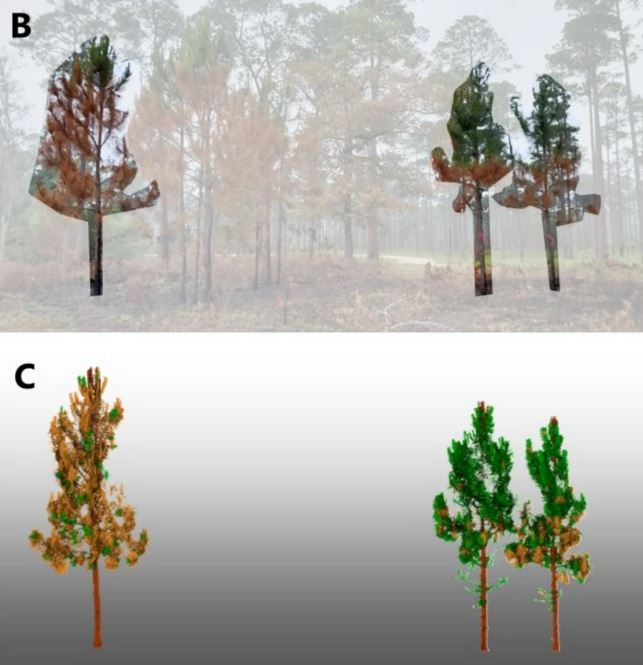
We joined a recent episode of Fire Ecology Chats, to discuss our lab’s new research using terrestrial lidar to measure fire-caused crown scorch in longleaf pine. By linking lidar return intensity to scorch severity, this approach offers a faster, more objective alternative to traditional ocular estimates—scaling fire effects measurements from individual trees to entire stands. The conversation explores implications for fire ecology, forest monitoring, and operational fire effects research.
Landscape Ecology Lab welcomes Khanh Ton
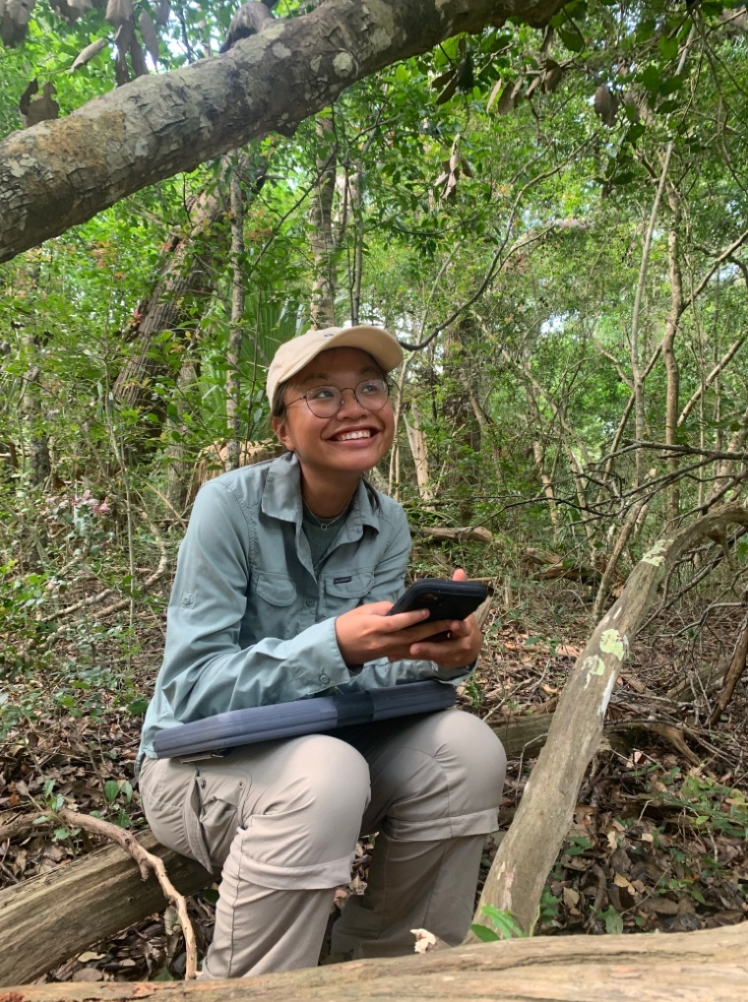
The Landscape Ecology lab is excited to welcome Khanh Ton as our new Geospatial Analyst! Khanh recently earned her MS from the University of New Hampshire, where she studied how prescribed fire supports red oak regeneration. At the Jones Center, she will lead projects using drones, lidar, and satellite imagery to assess longleaf pine habitat quality. Her geospatial expertise will strengthen our lab’s efforts to apply cutting-edge technology in conservation.
Scienmag highlights labs work on hurricane threats to Longleaf Pine ecosystems
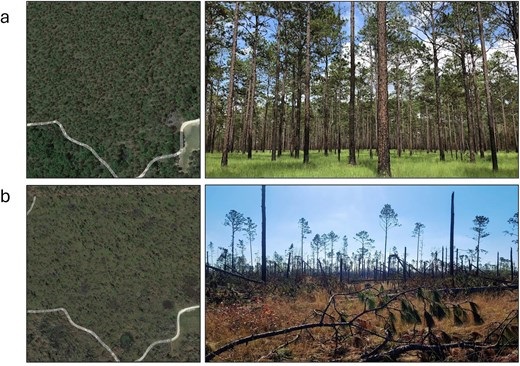
A new study led by lab post-doc Nicole Zampieri was recently featured on Scienmag. The article highlights our work on quantifying the escalating hurricane risks threatening North America’s iconic longleaf pine ecosystems. This research reveals how intensified hurricane activity and compounded stressors imperil biodiversity-rich coastal savannas. Our work underscores the urgent need for adaptive management strategies to safeguard these vital ecosystems under climate change.
How longleaf pine patches shape fire: New research and podcast interview on Fire Ecology Chats
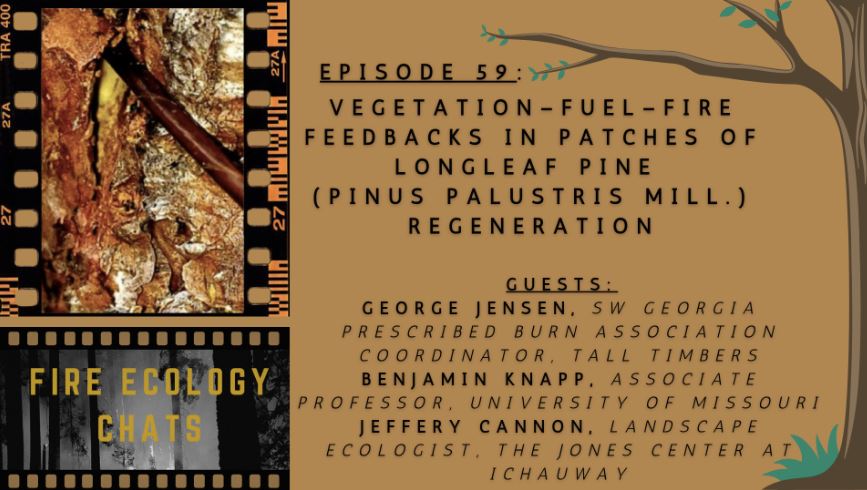
George Jensen, an MS student in our lab, recently led a study published in the journal Fire Ecology exploring how dense patches of regenerating longleaf pine influence fuel structure and fire behavior. We joined Bob Keane on the Fire Ecology Chats podcast to discuss the paper, answer questions, and talk about what these feedbacks mean for forest restoration. Tune in to the episode to hear more about how fire, fuels, and vegetation interact in the longleaf pine ecosystem!
Sierra Magazine highlights forest impacts from Helene and lab’s ongoing research on forest resilience
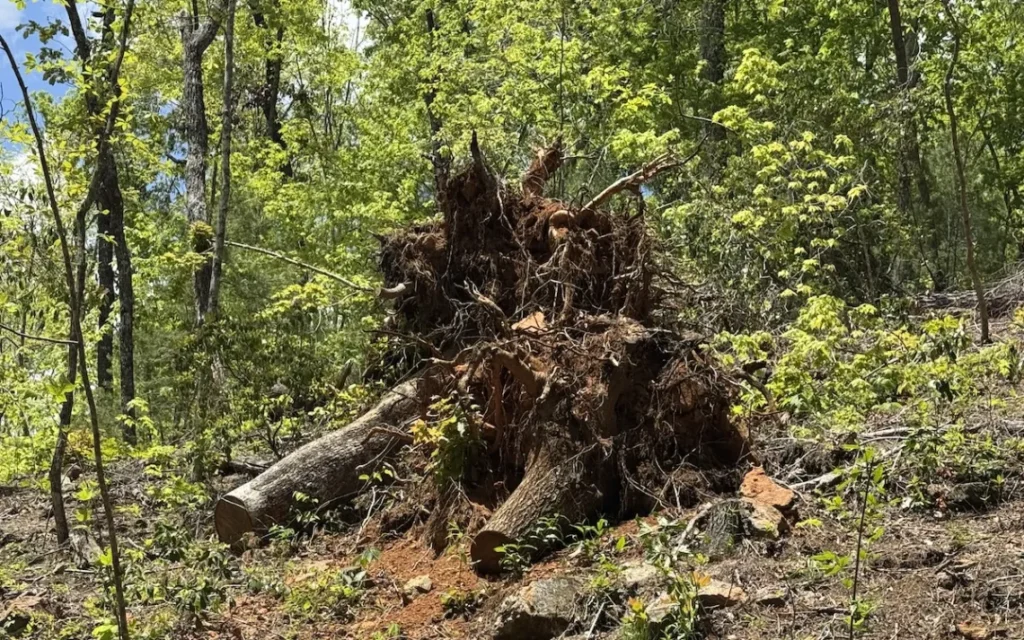
A new Sierra article explores the long-term impacts of Hurricane Helene on Western North Carolina’s forests, including tree loss, fire risk, and shifting species composition. Our lab contributed insight into how storm damage affects forest resilience and recovery. Understanding these dynamics is key to guiding restoration efforts and preparing for more frequent, intense storms in the region.
New video highlights lab’s research on water benefits from longleaf pine restoration
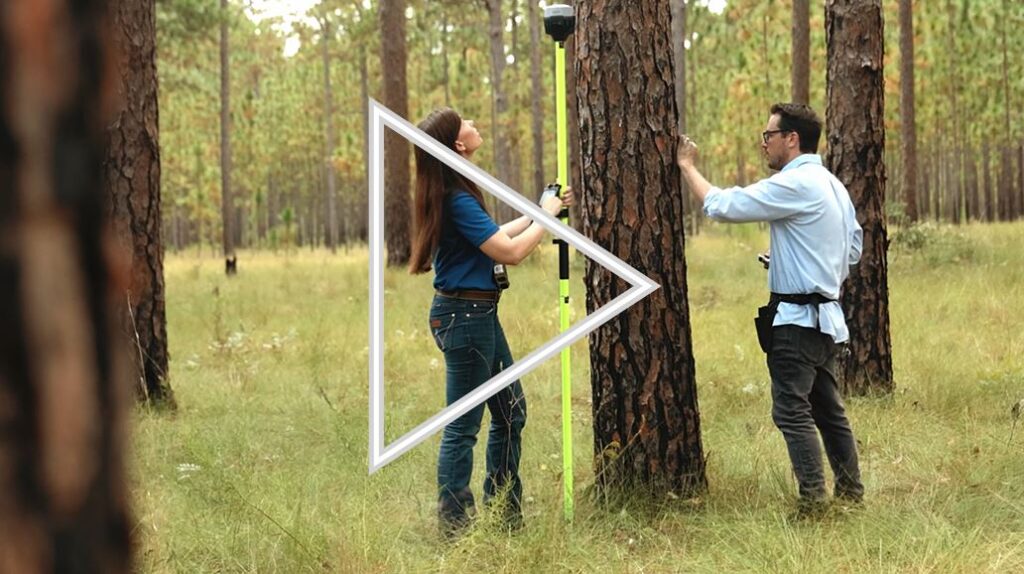
Research from the Landscape Ecology and Ecohydrology labs shows shows that restoring open longleaf pine woodlands can boost streamflow—especially during drought. Watersheds with more longleaf cover had up to 92% higher flows in dry years, making this iconic ecosystem a potential ally in the fight against water scarcity. Watch the short video to see how climate-smart forest management can help sustain both forests and freshwater.
Now recruiting: PhD Research Assistantship in Forest and Fire Ecology

We are seeking motivated individuals to apply for a PhD research assistantship in Forest and Fire Ecology. The research will combine field intensive fuel, fire behavior, and regeneration data collection, mapping and processing, and capitalizing on existing and new data from the Ichauway Forest Dynamics Plot at the Jones Center. The student will be appointed as a Graduate Research Assistant (GRA) but will assist with teaching undergraduate courses in Forest Fire Management and Forest Ecology. Although a PhD student at Auburn University, the student’s work will be co-sponsored by the Jones Center at Ichauway. Applications reviewed February 28, 2025.
Lab’s mesophication work featured on Fire Ecology Chats Podcast (Ep. 37)
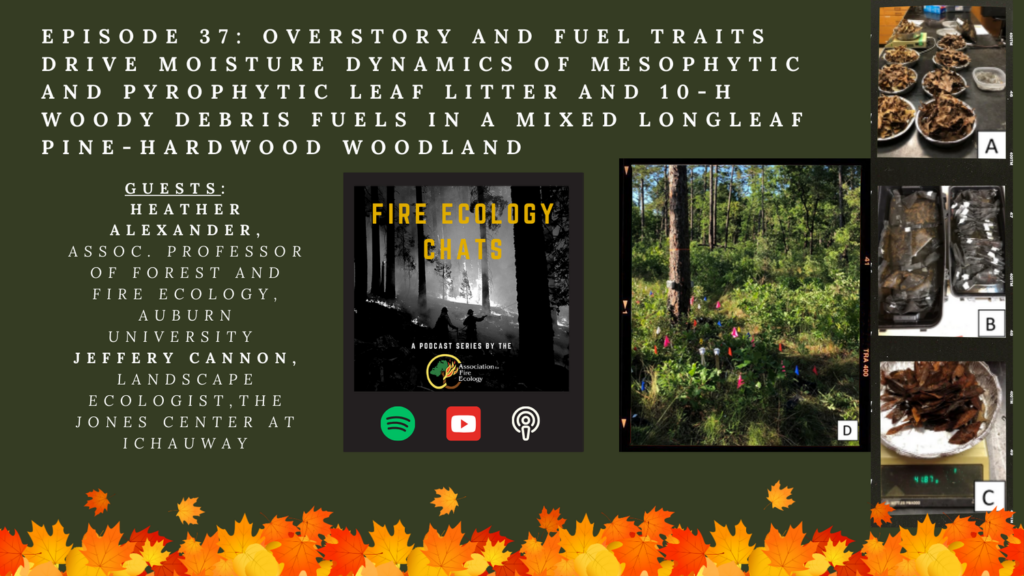
In this episode of Fire Ecology Chats, Fire Ecology editor Bob Keane speaks with Heather Alexander and Jeffery Cannon about reintroducing fire into mixed longleaf pine-hardwood woodlands, and how that will be affected by the shade-tolerant, fire-sensitive species that have grown during periods of fire exclusion.
Lab’s fire research featured on Fire Ecology Chats Podcast (Ep. 36)

In this episode of Fire Ecology Chats, Fire Ecology editor Bob Keane speaks with Doug Aubrey and Jeffery Cannon about better predicting the leaf litter component in a pine forest to better understand how fire might move through forests under different management scenarios.
Pardon our smoke: Prescribed fire season ramps up in Georgia
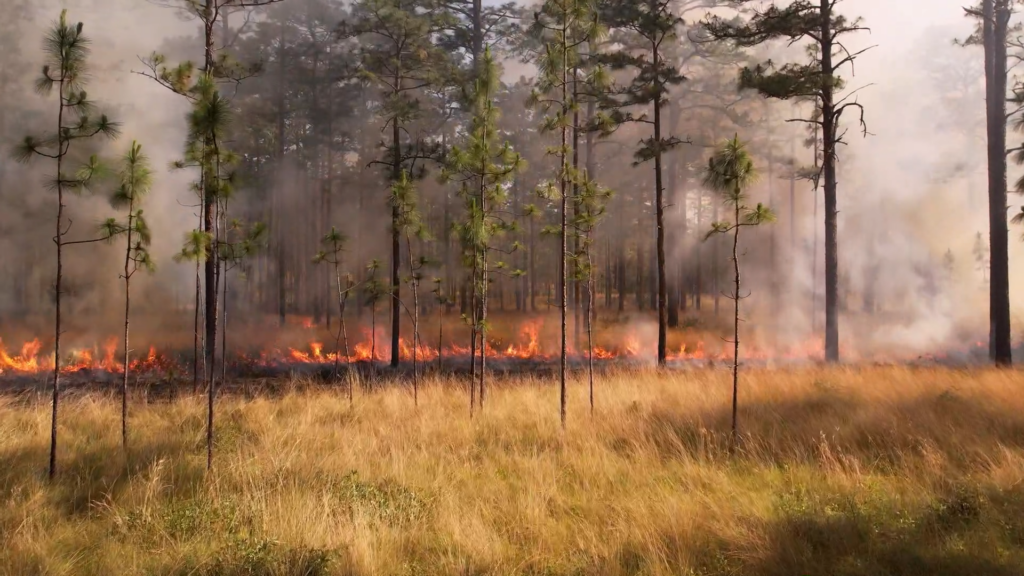
February and March bring “bluebird days” where weather conditions are perfect for using prescribed fire to help conserve and protect longleaf pine ecosystems and the native species they house.